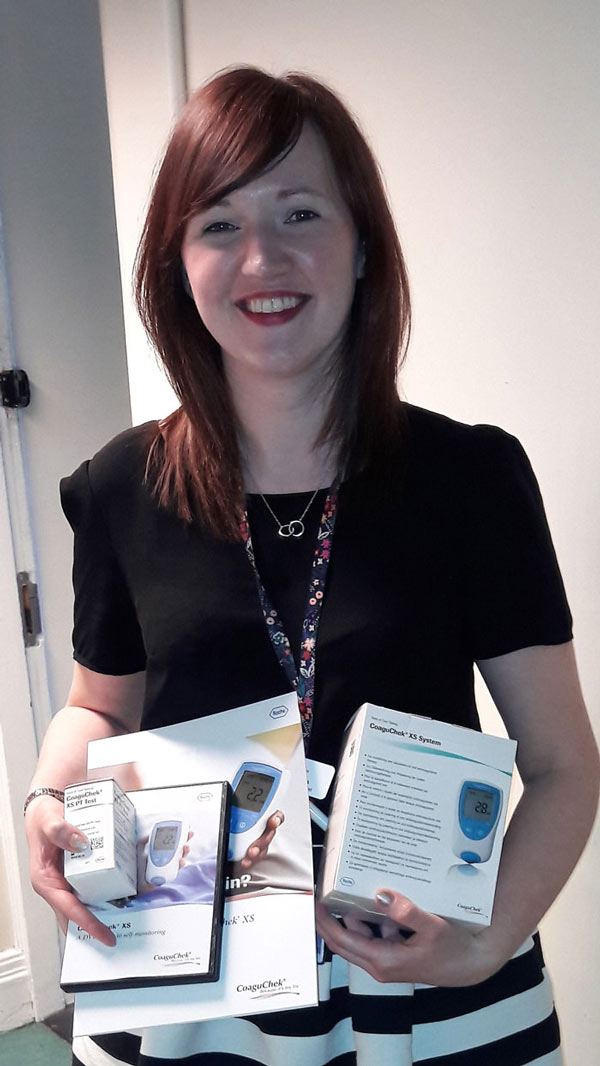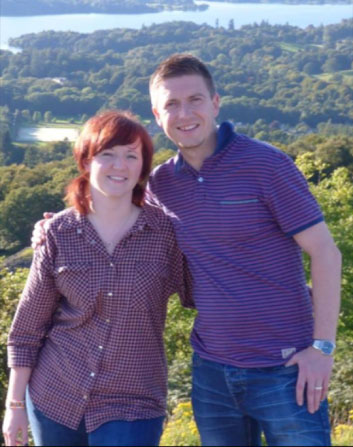Lynda became the new Adult Congenital Heart Disease (ACHD) Clinical Nurse Specialist six months ago. Her role is to support young people and their families going through the transition from children’s to adult cardiac services.
From early on in my school biology days I always had an interest in the heart.
When I qualified as an adult nurse in 2005, and was offered cardiac surgery as one of my posts, for me it was any easy decision to take this post.
Over 12 years working in cardiac surgery, I looked after many congenital patients as they came through for surgery, and always had a special interest in listening to their journey and experiences as a heart patient.
I got to know Jan Gordon well, who has worked for many years as the ACHD Nurse Specialist, and I could see the relationship she got to build with her patients, the trust they had in her and the support and comfort she could bring to them. As a nurse, this is the relationship I want to have with my patients, to be able to educate and support both them and the family, through their life long journey.
When the job was advertised I knew it was the right job for me.
The move to adult services can be seen as a very scary time, leaving one team and hospital behind and joining a new unfamiliar team.
The aim of transition is to plan, prepare and support our young people to make a move from children’s services into the adult service. It is a gradual process of change where we work together to set goal and gives everyone time to ensure that young people and their families are prepared and feel ready to make the move.
Transition is a time where we start to engage with and encourage young people to take responsibility for their own health, and to help them make informed choices for both now and the future. The parents’ role is to be part of the process but take a step back from making every decision so that the young person gets increasing independence in making choices. Our aim is that the young person will have greater independence, understanding of their condition, understand the importance of life long follow up and will engage with the service. This means they are less likely to be lost to follow up as they move away from home and start their lives at universities and work.
It is about starting to build new relations with the adult team, and in doing so, helping to support our young people to reach their maximum potential in terms of health, development, education and career.
When you are ready, you get to meet the adult team at one of our ‘handover’ clinics. At these clinics we teach you about your condition, treatments you have had, symptoms to looks out for, any future interventions, medications and lifestyle choices. You can tell us anything that is important to you, that you feel we should know.
I love how no two days are the same. My job can be very unpredictable and you never know what challenges the day is going to bring.
The most important part to me is having time to listen to and talk through people’s fears and concerns. Some may need education to understand their condition, others need help understanding treatment options, often conditions bring daily struggles which we can help to support and guide lifestyle changes and sometimes people just need someone who will listen and understand.
Being able to provide this support and make a small difference is the reason I do this job.
I think the most important thing is not to be afraid. It is a scary time with so many other life changes happening like exams, changing schools and career choices. We work very closely with the children’s teams, they come to our weekly meetings where we discuss patients, and you may also see a familiar face as some come to our adult clinics.
Never be afraid to ask questions. If you have any worries or concerns, don’t feel you have to wait until your next review. You can call, text or email us. We can listen, talk you through a problem, or bring you up to a clinic earlier if there are any symptom changes. We are here for you as much or as little as you need us.
At the weekends you will find me around Lough Erne on my boat relaxing with a good book. I have a beautiful cocker spaniel called Milly who I love taking out for a long walk to explore new places.
During the week I spend time with family and friends. I have recently bought a sewing machine so I am experimenting making things with it, I make jewellery and bake… more importantly I love eating the cakes and buns!


